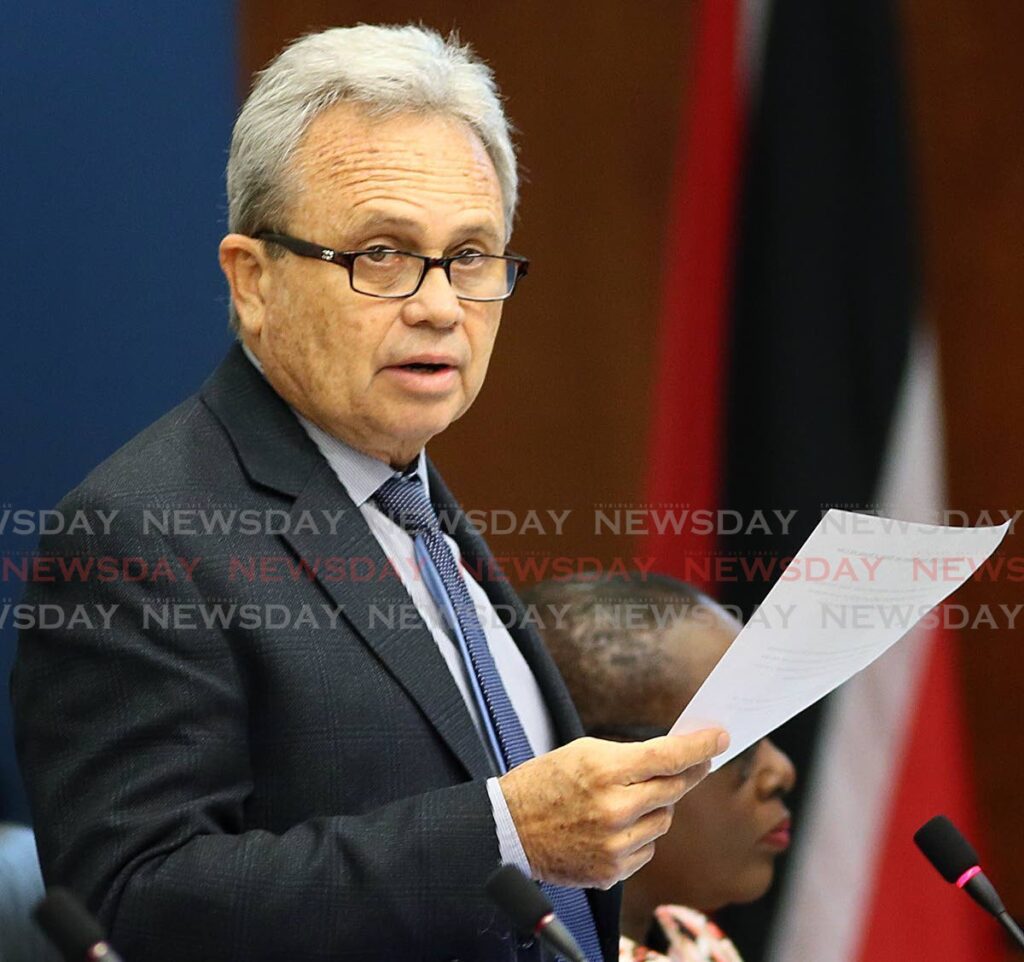Economist on Imbert’s tweet on fuel price rise: Other factors to consider

SEVERAL factors must be considered with respect to justifying Government's decision to increase fuel prices. UWI economist Dr Vaalmiki Arjoon made this observation on Wednedsay in response to tweets posted earlier in the week by Finance Minister Colm Imbert, to justify the planned increase in fuel prices from April 19.
Imbert announced the proposed increases in the House of Representatives on April 8. Current prices per litre, for premium gasoline, super gasoline and diesel are $5.75, $4.97 and $3.41 respectively. On April 19, the price of premium gasoline and super gasoline will be adjusted by $1 per litre to $6.75 and $5.97, respectively, while the price of diesel will be adjusted by $.50 cents to $3.91 per litre.This is the fourth fuel price adjustment implemented since the PNM returned to office in September 2015.
In a tweet on Tuesday, Imbert said, ""Increases in the price of gas are never easy to absorb, but it is important to note that the price of gas in TT is the second lowest out of 13 Caribbean countries in 2022. He also observed that diesel in the United States is currently $9.13 per litre compared to the current $3.41 per litre price in TT.
Arjoon said, "While I don’t think we can really justify increasing prices by comparing ours with other economies, as the economic circumstances and management in all countries are not the same." He added that any comparison of fuel prices between TT and other countries, would be better if the latter were oil-producing countries.
"The comparisons with other Caribbean countries is tenuous, especially since they are non-oil producing economies."
He cited Pakistan as an example of an oil-producing economy. "Pakistan has a GDP (gross domestic product) per capita based on purchasing power parity (ppp) of US$4,562.62 which is much lower than ours of US$23,722.48." The price of gasoline in Pakistan is US$0.819 or $5.56 per litre. Arjoon said similar examples could be found in other oil producing economies such as Algeria, Tunisia, Ecuador and Belarus.
"All this shows that while these countries are faced with a purchasing power that is worse than ours, they are still charging lower prices at the pump." Arjoon added these countries also have refineries which lessens their needs for importing fuel.
Arjoon examined other oil producing countries such as the United Arab Emirates, Denmark and the United Kingdom. While these countries have high fuel prices, he said they "offer better public transportation systems and networks than we do."
He also said these countries provide better support for their citizens through advanced health care services, more access to social services, schooling, infrastructure and basic amenities such as potable water and housing.

Against this background, Arjoon said it is difficult to justify the planned fuel increases.
"Like these countries, we would be more justified in charging higher prices at the pump if we implemented measures to establish better living conditions and infrastructure to enhance the quality of life locally."

Comments
"Economist on Imbert’s tweet on fuel price rise: Other factors to consider"